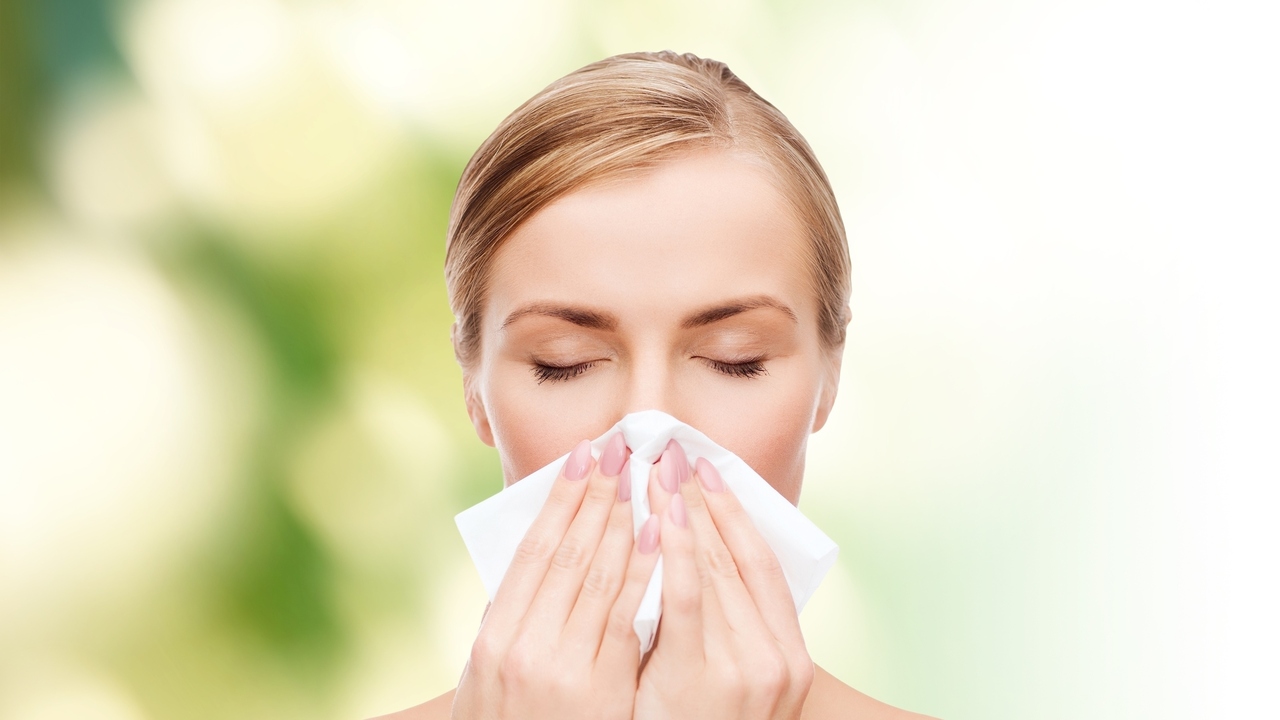
Spring is finally here, and along with the gorgeous weather comes pollen. Many allergy sufferers know all too well the symptoms of hay fever, caused by pollen released from budding trees and plants. The airborne pollen is easily inhaled through the nose and mouth, and for sensitive people, it can cause a series of miserable symptoms.
Spring is finally here, and along with the gorgeous weather comes pollen. Many allergy sufferers know all too well the symptoms of hay fever, caused by pollen released from budding trees and plants. The airborne pollen is easily inhaled through the nose and mouth, and for sensitive people, it can cause a series of miserable symptoms, such as itchy watery eyes, sneezing and a scratchy throat.
The Asthma and Allergy Foundation of America defines allergies as a reflection of an overreaction of the immune system to substances that usually cause no reaction in most individuals. It is estimated that 35-40 million Americans suffer from hay fever or other seasonal allergies. While over-the-counter drugs can provide some relief, they also cause side effects, especially drowsiness, fatigue and brain fog.
The best strategy against hay fever is to build up your immune system and promote a healthy response to inflammation, which is the primary cause behind uncomfortable allergy symptoms. Read more information about natural remedies for chronic inflammation here.
Hay fever results when the immune system identifies pollen as a foreign invader. Your body will produce antibodies in response—and these antibodies will bind with certain cells and release inflammatory chemicals such as histamine. Most antihistamines work to suppress histamine reactions and lessen your symptoms. However, there are natural ways to build up your body’s defenses to allergens instead of medicating with over the counter drugs.
Many doctors now know that providing your body with extra immune system support, as well as supporting the response to inflammation, is the best way to give yourself a fighting chance against seasonal allergies. Natural solutions include medicinal mushrooms that regulate the immune system and herbs which help the body cope with heightened inflammation. Medicinal mushrooms are immune modulators, able to naturally balance and support your immune system—and in the case of allergies, to reduce your body’s hypersensitivity to pollen and other allergens.
In addition to medicinal mushrooms, certain unique herbs and botanicals work together to balance inflammation, regulate healthy immune responses and provide antioxidant support. Tannins, flavonoids and polyphenols are considered “cooling” components that provide wide-spectrum immune support and help bring overall balance to the body’s systems.
Don’t let allergies make you miserable all season long! Prepare and strengthen your body by using natural strategies against hay fever, and skip the unpleasant side effects from drugs. Find out more about the health benefits of medicinal mushrooms by downloading my complimentary wellness guide.

A new study suggests that a widely used sugar substitute found in diet sodas, chewing gum, and low-sugar yogurt may elevate insulin levels. This could increase the long-term risk of heart disease. “Artificial sweeteners have infiltrated nearly all types of food, making it crucial to understand their long-term health effects,” said Yihai Cao, senior author […]

Diet Coke has long been a fan-favorite among soda lovers who want a fizzy, guilt-free alternative to traditional soft drinks. While its zero-calorie, zero-sugar label makes it seem like a healthier option, the reality is far more concerning. Despite its undeniable popularity, Diet Coke’s nutritional profile has raised red flags among health experts for years. […]

New study shows that embracing an anti-inflammatory, plant-forward diet can support cognitive function and help reduce the risk of dementia. What You Eat Shapes Your Brain The food you eat doesn’t just impact your body—it also affects your brain. Research suggests that eating an anti-inflammatory, plant-based diet can help improve memory, focus, and overall brain […]